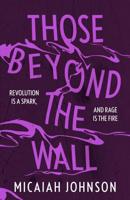Publisher's Synopsis
"Alice's Dystopian Room" is an intense and profound work that transports the reader to the dark year of 2035, where the protagonist, Alice, a 32-year-old woman, finds herself on the brink of an emotional and psychological collapse. A graduate in Political Science and once full of promise of transformation, Alice has been devoured by the relentless machinations of international politics. Her trajectory of idealism turned into disillusionment reflects the impotence she feels in the face of a world plunged into chaos.
Alice is a paradoxical figure: a woman who appears cold and distant, but whose interior is devastated by past traumas and the unbearable weight of her failed career. The collapse of the world order is the perfect setting for her personal collapse. Nuclear wars, environmental crises and the dissolution of global institutions paint a bleak portrait of the future, where human survival is uncertain and society struggles to stay on its feet. Alice, lost in this world, sinks deeper and deeper into dependence on medication and existential emptiness. The book reveals in detail the invasion of Taiwan by China, the global economic collapse and the rise of new totalitarian regimes, such as the recreation of a Soviet Union under the ruthless leadership of Vladimir Putin. These global events are the backdrop for Alice's internal struggle. Disenchanted with her work, she finds herself trapped in international negotiations with authoritarian regimes, where her presence is merely symbolic. What at first seemed like a dream career turns into a nightmare of invisibility and impotence. The effects of medication on Alice's life are devastating. The abuse of drugs such as Xanax and Phenobarbital keep her functioning in a world that is falling apart around her, but as the narrative progresses, it becomes clear that her mind is on the brink of destruction. The reader is immersed in her world of chronic insomnia, where time is cruel, and every second awake is a bitter victory over her exhausted body. The plot also does not spare the reader the pain of reliving Alice's childhood traumas, from the abuse she suffered to the isolation at school. These phantoms shape her perception of the world and her desire to understand the logic behind global conflicts. Yet, ironically, the more Alice understands politics, the more alienated and powerless she feels to change the destructive course of the world. At its core, Alice's Dystopian Room is a meditation on human powerlessness in the face of greater forces, be they political, social, or psychological. The narrative is as suffocating as Alice's room, a space that mirrors her mind: chaotic, claustrophobic, and filled with painful memories. Each page is a struggle between the hope of escape and the acceptance that the only escape may be total surrender. Alice becomes a symbol of our inability to resist the impending collapse-not only of the planet, but also of ourselves.








